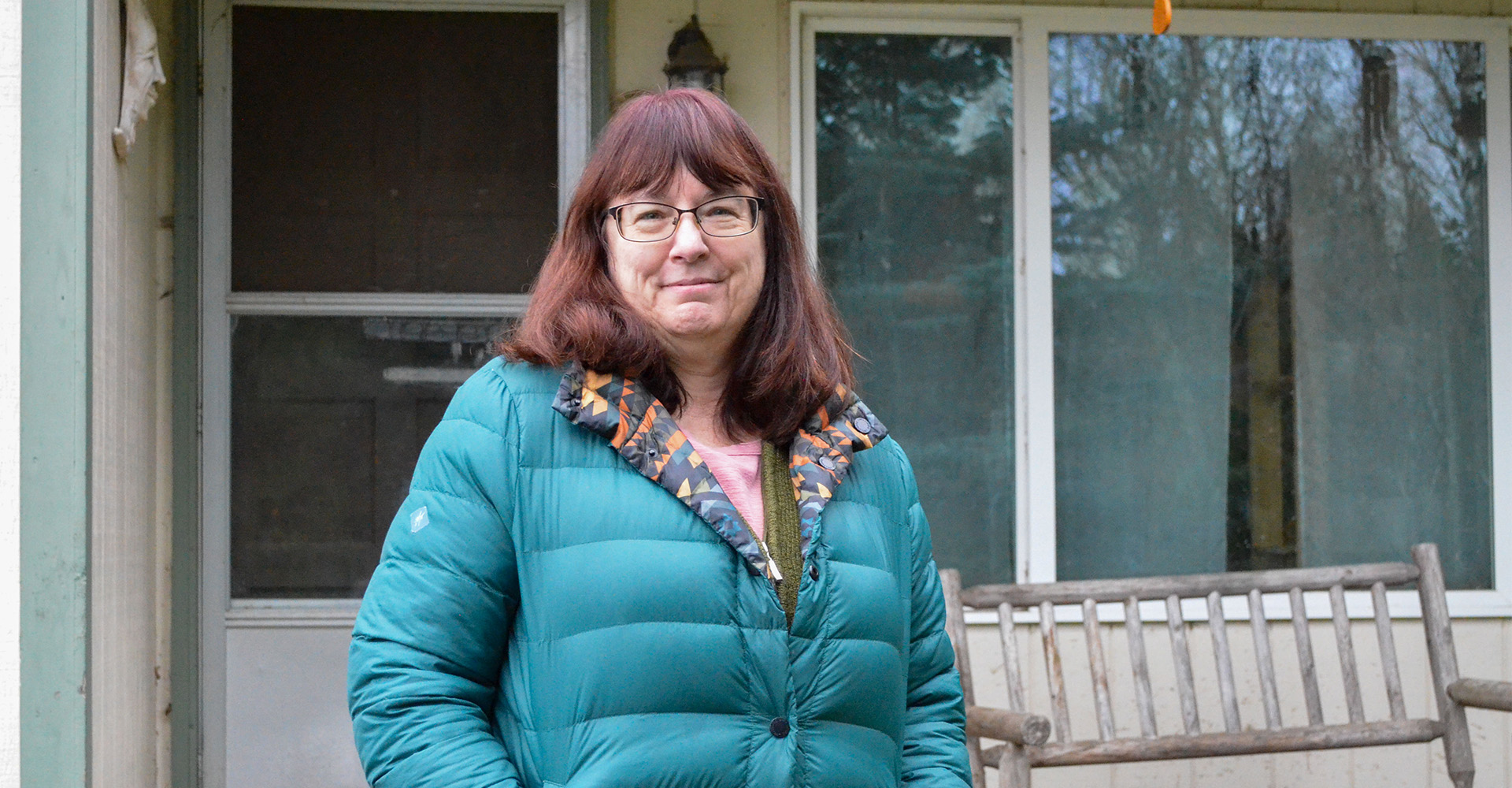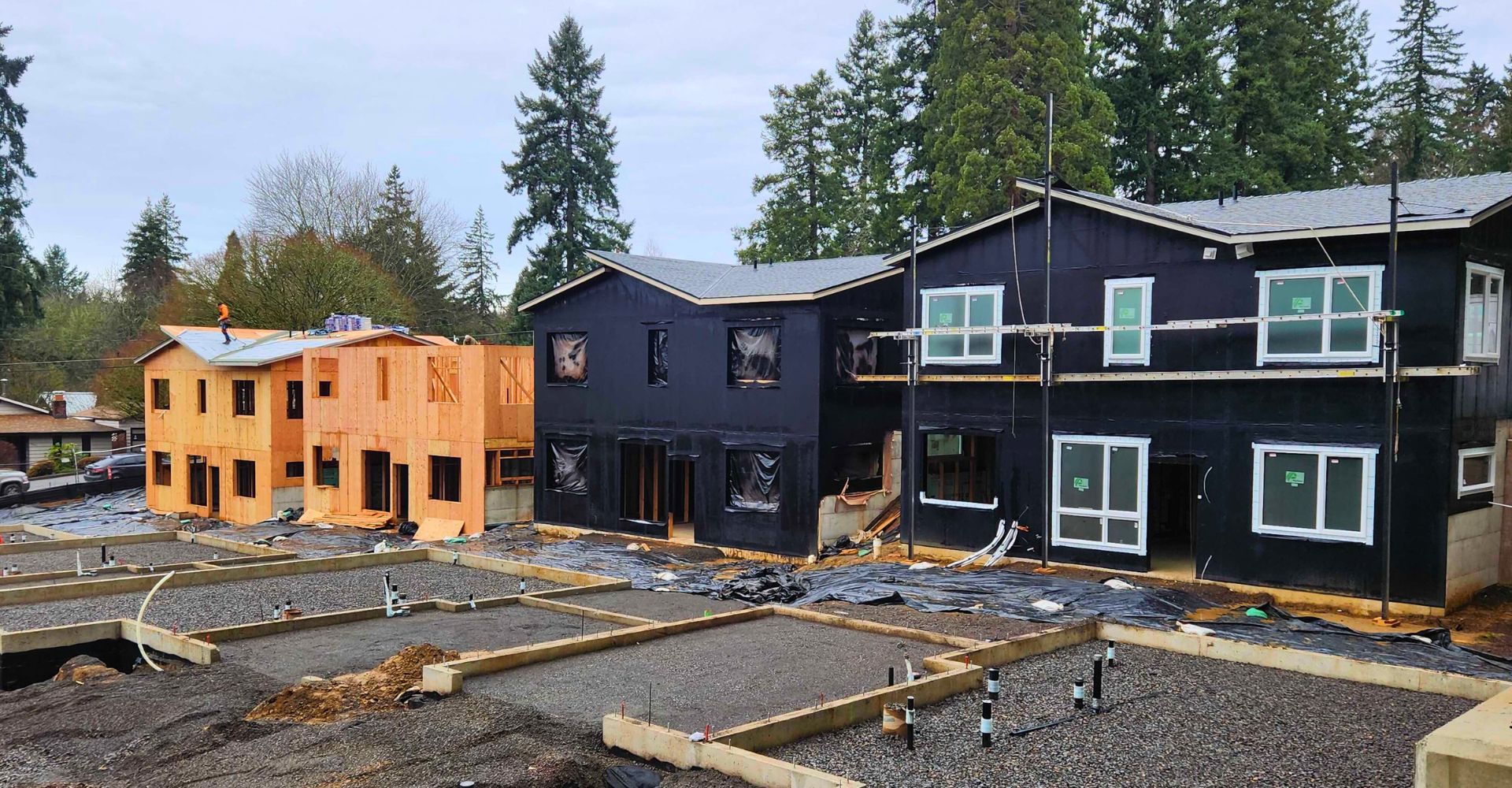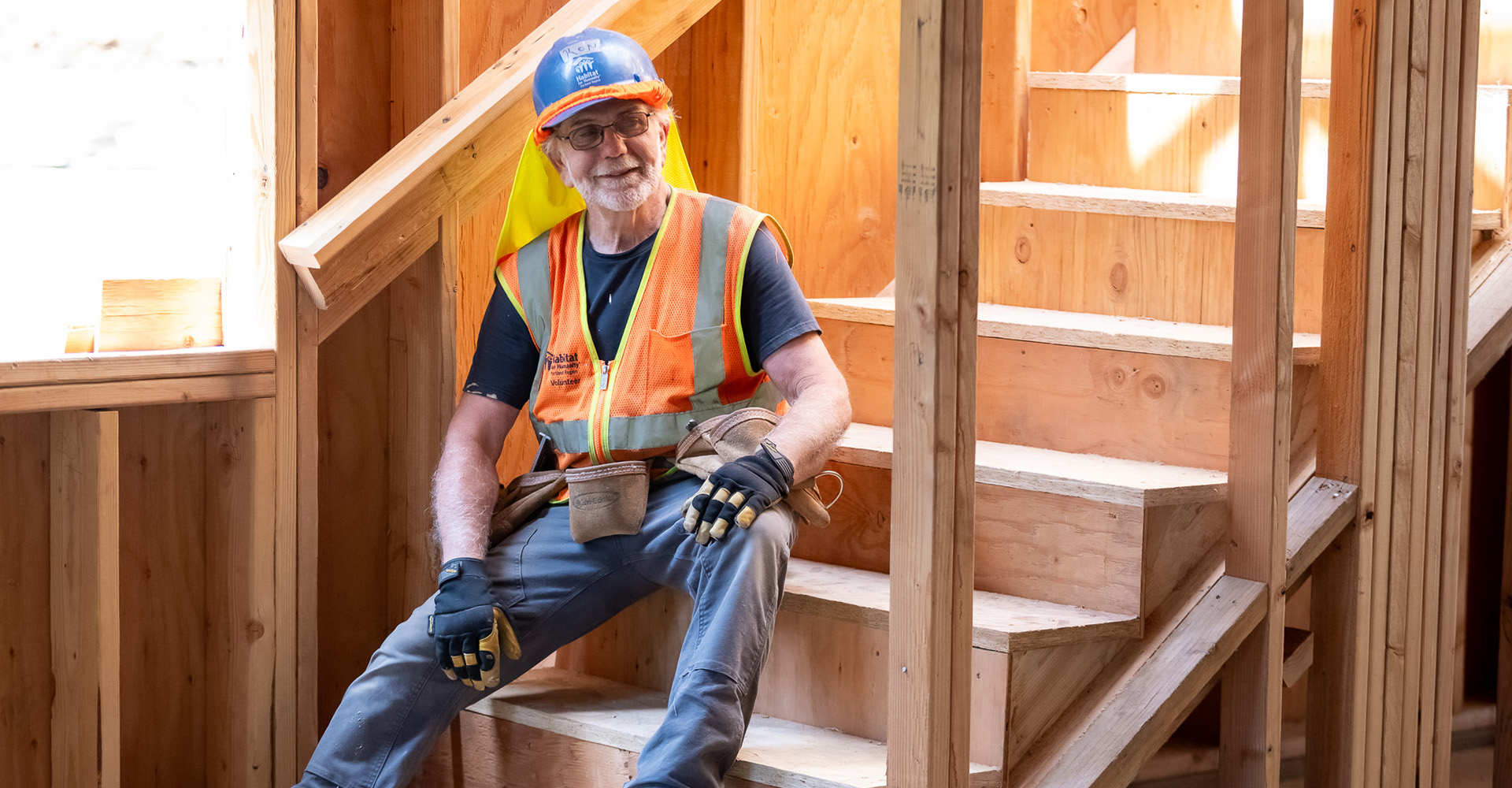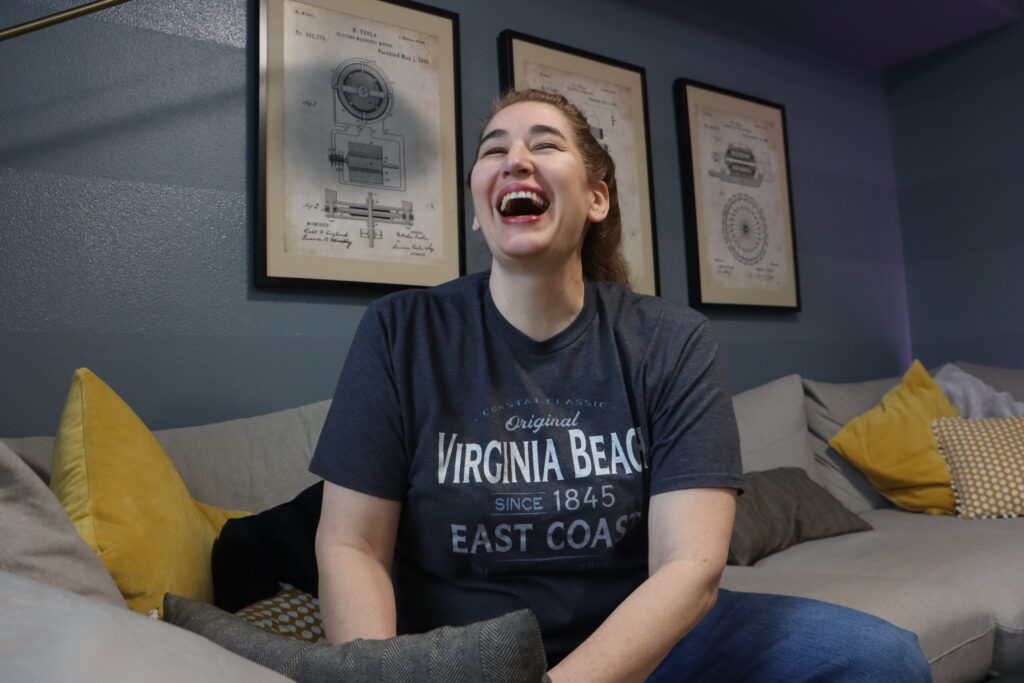
Ellen stands at her Ninja blender in her kitchen, preparing smoothies for herself and her sons as she does every morning. She knows pretty much everything there is to know about smoothies; various recipes are taped to the insides of her cupboards, and her freezer is filled with frozen berries and vegetables.
For Ellen’s family, smoothies are a lot more than a colorful and refreshing breakfast. Two of her adult sons are on the autism spectrum, and morning smoothies are the only way Ellen can incorporate vegetables into their diet. And because she owns her home, and her mortgage is affordable, she can afford the trial and error it takes to satisfy sensitive diets.
“I’ve sort of perfected this thing because it allows me to address everybody’s sensitivities and to get great nutrition in affordably,” Ellen said. “By having the luxury of living in better circumstances, we’re no longer fighting an uphill battle.”
Ellen fought an uphill battle for a long time. She was raised in a cult, and living in an abusive relationship, which she finally escaped with her sons in 2016. But the only way she was able to secure their freedom from the abuse, she said, was to make an agreement with her abuser that she would take on a debt of over $120,000. She calls the agreement a deal with the devil, one that she would never get out of financially.
“I would not be able to recover,” she said. “Because nobody who has the children I have would be able to venture into any career that could pay that back.”
After they fled, Ellen and her family went into hiding. During that time, they experienced homelessness, and when they did have a rental, the payments were more expensive than she could afford, with prices rising higher each year. Ellen remembers the experience as a “financial disaster.”
Around this time, she joined a survivor-led support group for domestic violence survivors. The leader suggested the group attend a Women Build event at Habitat for Humanity Portland Region. Ellen’s father had worked in construction technology, and she remembers tagging along with him to construction sites and being fascinated by how everything was conducted.
At this event, Ellen learned some important things about Habitat that convinced her this might be the right option for her family.
She learned that Habitat’s construction was high quality and energy efficient. She has always valued sustainability and being kind to the environment.
And she had finally discovered an organization that not just listened to but understood her complicated story. The financial situation she’d found herself in was not of her own doing, and that was something banks had failed to grasp. Habitat, however, listened.
In the spring of 2018, when Ellen had found herself in the direst of financial states, she found out she had been selected to become a homeowner.
“We were so lucky because they really gave a lot of consideration to our issues,” she said.
Now it was time for the family to put in participation hours. When she was in elementary school, Ellen remembered how her class would make a Christmas tree out of paper links and rip one off each day until the holiday finally arrived. She made a similar visual for her sons, forming paper links that they could tear off when they completed participation time to visualize how close they were to getting their home.
“We really had a wonderful experience,” Ellen said. “My sons just loved the Habitat crew.”
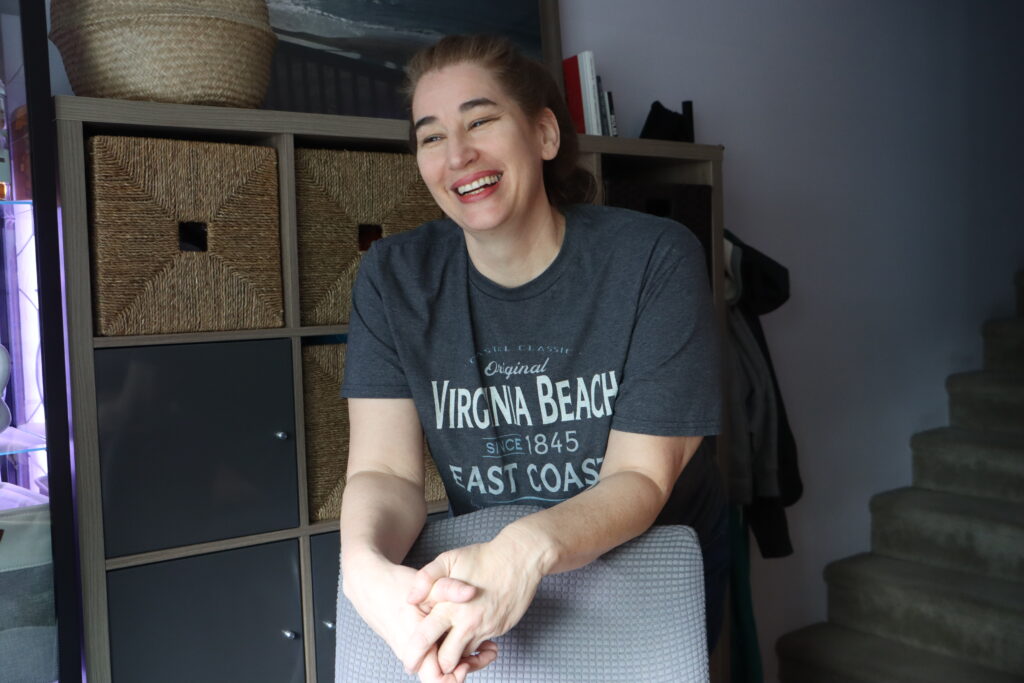
In August 2020, Ellen moved into her new home with her sons and her sister, who had taken the family in after they had fled the cult. Ellen’s sister had just been diagnosed with stage 4 ovarian cancer. They set her bed up in the living room and cared for her until she beat the cancer that year. The cancer eventually returned, and this time she was not so lucky. She passed in August, three years after the family had gotten their home.
Although life is not the same without her sister, Ellen and her sons enjoy being together in their home every day. Her sons finally have the proper support they require after years of having no support or schooling in the cult. In fact, Ellen said, everyone in the house is starting college this year to study public policy, something she knows her sister would be extremely proud of.
“I feel like I’m wealthy,” Ellen said, adding that they’re enjoying a life that was unheard of to her before. “I have disposable income, income that I can use on things.”
Having two sons on the autism spectrum, Ellen has been able to design a comfortable home for them for the first time. Her sons are sensitive to light, sound, and heat, so her walls are painted a dark blue, there is non-reflective glass over the art on the walls, and the home is equipped with air conditioning. They even use special silverware that is dark and non-reflective.
“It’s interesting how much you don’t realize when you don’t have choices, how much your home isn’t for you,” Ellen said. “We are less in trauma and we’re more in flourishing.”
The disposable income, sense of freedom, and suitability of the home are all great aspects of being a homeowner, but Ellen said the most important part of owning her home is the conversation it opens up with her children.
“When you are the parent and you’re so financially precarious, you protect your children from learning about how terribly stressful it is, how close to the paycheck you are all the time,” she said. “And because of that, you just don’t have conversations with your kids about how it is that we manage to stay in our home.”
She said that her kids, like so many others, were always familiar with the end of the month, when mom had no more money and it was popcorn for dinner. But now that she is no longer in that stressful and insecure position, she can be open with them about their future.
“All of that silence turned into communication,” she said. “My sons know that this home belongs to them.”
